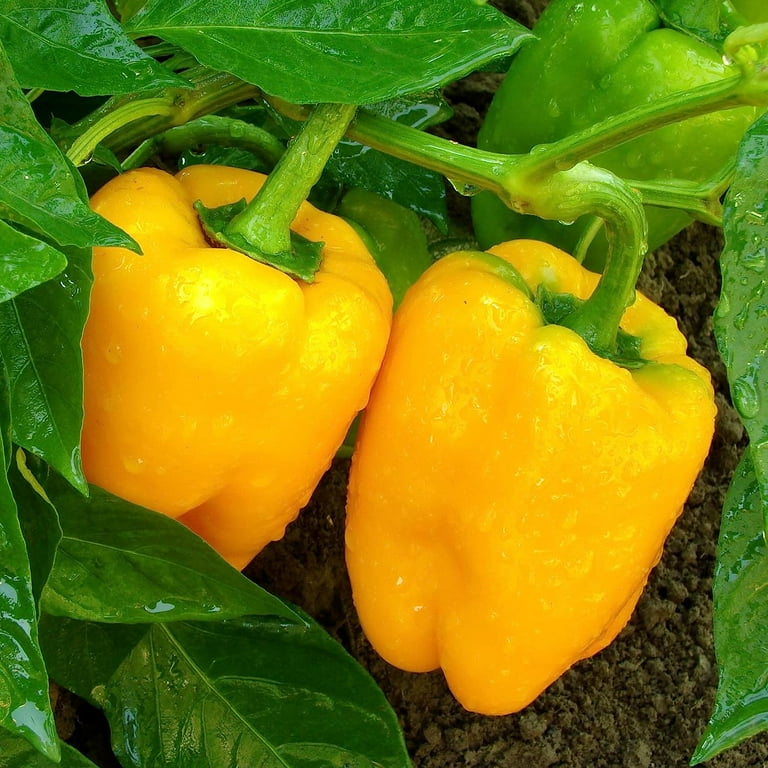Find Out the Best Fertilizers for Peppers: Top Picks for Optimal Growth
Find Out the Best Fertilizers for Peppers: Top Picks for Optimal Growth
Blog Article
Organic Vs. Synthetic Fertilizers: Which Is Best for Nurturing Healthy And Balanced Pepper Plants?
In the world of supporting healthy and balanced pepper plants, the option between organic and artificial fertilizers stands as a pivotal decision with far-ranging effects. While both alternatives goal to provide crucial nutrients to sustain plant development, the subtleties of their effect on the soil, plant wellness, and the setting spark a debate that echoes throughout the gardening neighborhood. Comprehending the unique benefits and potential challenges of each fertilizer type is important for pepper farmers seeking to maximize their returns while keeping an eco-conscious and lasting strategy.
Benefits of Organic Fertilizers
Organic fertilizers use a sustainable and environmentally-friendly method to nourishing pepper plants, providing important nutrients without the usage of artificial chemicals. These all-natural fertilizers are derived from natural sources such as garden compost, manure, bone meal, and seaweed, advertising soil health and biodiversity. Unlike synthetic fertilizers, organic alternatives launch nutrients gradually, ensuring a consistent and well balanced supply for pepper plants to thrive.
One considerable advantage of natural plant foods is their capacity to boost soil structure and water retention. By boosting soil health and wellness, natural plant foods advertise helpful microbial task, which aids in nutrient uptake by pepper plants. Additionally, natural fertilizers minimize the danger of chemical run-off, shielding water resources from air pollution and protecting the setting.
Furthermore, natural fertilizers add to long-lasting soil fertility by advertising the development of beneficial soil microorganisms. These organisms aid damage down natural issue, releasing nutrients in a kind that is conveniently available to pepper plants. best fertilizers for peppers. By fostering a healthy and balanced soil ecological community, natural plant foods sustain lasting pepper farming practices that benefit both plants and the setting
Downsides of Synthetic Plant Foods
Synthetic fertilizers, in contrast to their organic counterparts, present numerous downsides when used to nourish pepper plants, affecting both plant health and wellness and ecological sustainability. One significant downside of synthetic plant foods is their propensity to leach nutrients from the soil swiftly.
Additionally, the overuse of synthetic fertilizers can add to water contamination. Excess plant foods not absorbed by plants can remove into water bodies, leading to eutrophication, where algae blossoms diminish oxygen degrees in the water, hurting water life. In addition, artificial fertilizers are typically originated from non-renewable sources, such as fossil fuels, adding to carbon emissions and ecological degradation throughout their production.
Nutrient Absorption Comparison
Efficient nutrient absorption plays a critical role in the overall health and wellness and development of pepper plants. When contrasting synthetic and organic plant foods in terms of nutrient absorption, organic fertilizers have the benefit of offering a more balanced and slow-release resource of nutrients (best fertilizers for peppers). Organic fertilizers have a variety of macro and trace elements that are not just helpful for the plants but likewise advertise healthy and balanced soil microbial activity, which helps in nutrient uptake. On the various other hand, artificial plant foods usually give a quick release of nutrients, which can cause seeping and drainage, leading to reduced nutrient absorption prices by the plants.
Additionally, natural fertilizers improve soil framework and water retention ability, allowing pepper plants to gain access to nutrients much more successfully. This improved dirt high quality promotes origin growth, making it possible for far better nutrient absorption. Artificial plant foods, although at first enhancing plant development due to their high nutrient concentrations, might impede long-term nutrient absorption by degrading soil wellness with time.
Ecological Effect Considerations

On the other hand, synthetic plant foods, although typically more focused and promptly available to plants, can have detrimental impacts on the environment otherwise applied effectively (best fertilizers for peppers). Their production calls for high energy inputs, leading to greenhouse gas discharges and adding to climate adjustment. Additionally, the runoff of excess artificial navigate to this site fertilizers can pollute water resources, resulting in eutrophication and damaging aquatic ecosystems.
Ideal Fertilizer Practices for Peppers
To achieve this, it is vital to comply with finest fertilizer practices tailored to the specific needs of pepper plants. One essential practice is to perform a soil examination prior to using any type of fertilizers.
Another essential practice is to feed pepper plants at the correct time. Commonly, peppers take advantage of obtaining plant food at planting and afterwards once more when they begin to blossom. Over-fertilizing can result in nutrient imbalances and harm the plants, so it is essential to adhere to suggested application rates.
Additionally, picking a balanced plant food with an NPK ratio that matches pepper plants' demands is basic. Eventually, incorporating organic and synthetic plant foods sensibly can aid nurture healthy pepper plants while lessening environmental influence.
Verdict

Organic fertilizers supply a sustainable and environmentally-friendly technique to beneficial pepper plants, providing vital nutrients without the usage of synthetic chemicals. Unlike synthetic fertilizers, natural alternatives release nutrients slowly, making sure a well balanced and constant supply for pepper plants to thrive.
Synthetic fertilizers, in comparison click to read to their natural equivalents, pose various downsides when made use of to nurture pepper plants, impacting both plant health and environmental sustainability. When comparing artificial and natural plant foods in terms of you could try these out nutrient absorption, natural plant foods have the benefit of providing a more balanced and slow-release source of nutrients.Additionally, natural plant foods improve dirt framework and water retention capability, permitting pepper plants to accessibility nutrients extra efficiently.
Report this page